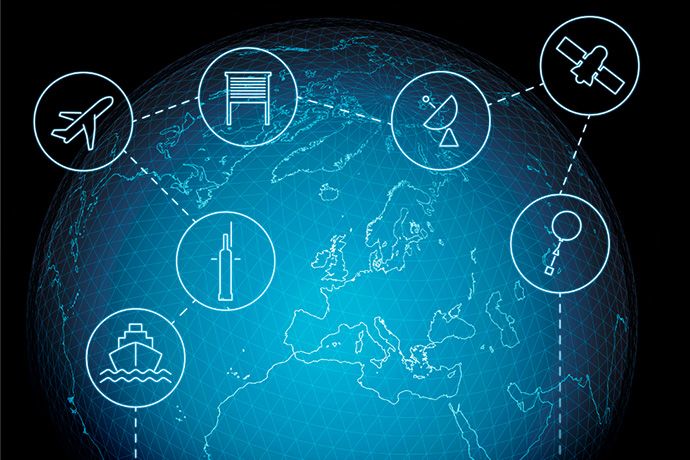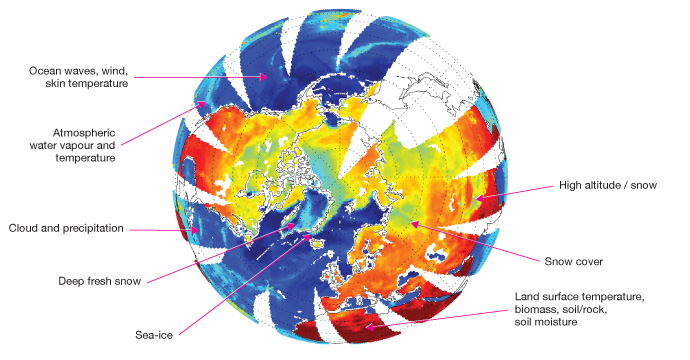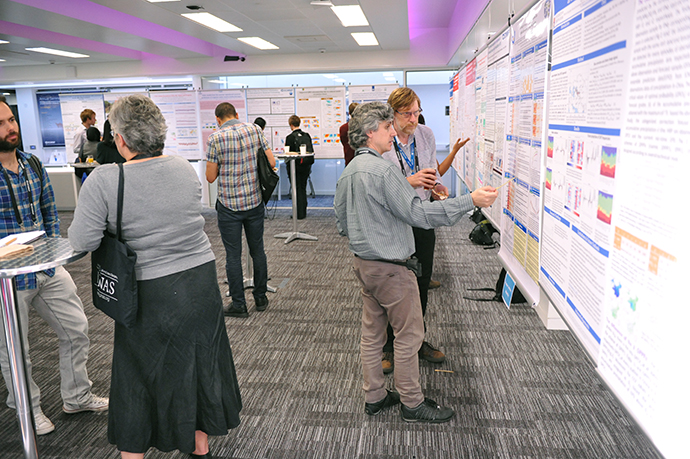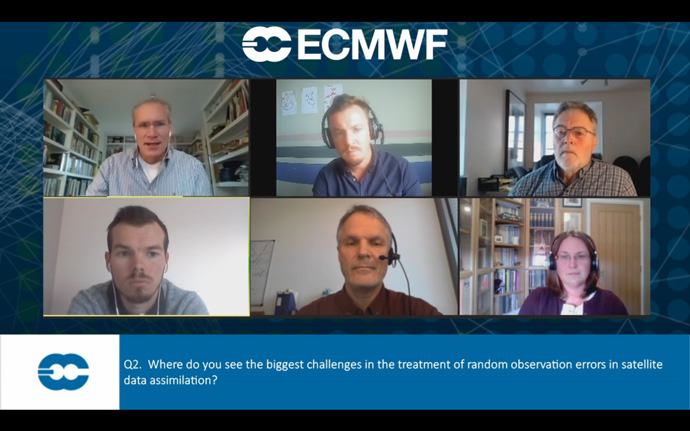

The ECMWF Annual Seminar 2021 takes place from 12 to 18 September and is dedicated to the topic of observations. It will be held in coordination with the WCRP–WWRP Symposium on Data Assimilation and Reanalysis in Bonn, Germany.
This is a double first for ECMWF: the first time the Annual Seminar has been held in coordination with another event, and the first time outside of the UK. However, it will not be outside of ECMWF, as the event will be held in the very premises that will initially house ECMWF’s new facility in Bonn from mid-2021.
The Annual Seminar is a long-standing annual event, targeting early career scientists and offering exchanges of views between established and fresh ideas.
Earth system view
The Seminar will run alongside the WCRP–WWRP event but will retain its integrity as a separate event with its own programme. The timing of sessions in the two meetings will be optimised to allow attendees to enjoy both events as much as possible, and to allow attendees to mingle and share their knowledge. To enable this to happen, the Annual Seminar will run over a seven-day period, rather than the normal four, but these will not be full days.
The Annual Seminar will provide an Earth system view of observations. The first session will consider which observations are currently used in Earth system numerical weather prediction, and whether and how they meet the requirements.
The second session will consider practical and scientific elements of the processing and assimilation of observations, for example their calibration, observation handling and observation operators.
The third session will explore current challenges, such as observation error correlations, use of artificial intelligence and machine learning, and handling implicit coupling across components from 'interface observations'.
The fourth session will consider diagnostics of observation impact: how do we assess how well we are using them, in forecasts and reanalysis, and across Earth system components?
Finally, we will look to the future, with presentations on forthcoming observations, both from big agency programmes but also new aspects such as citizen observation (Internet of Things, drones, HAPS). We will also examine future challenges to further expand the 'all-sky, all-surface' use of observations, which is such a key element of ECMWF’s 2021–2030 Strategy.

Special Sensor Microwave Imager/Sounder (SSMIS) F-17 channel 13 (19 GHz, V), microwave brightness temperature, 3 December 2014. Brightness temperature measured by a satellite instrument sensitive to microwave radiation (rainbow colour scale: blue indicates the coldest brightness temperatures and red the warmest). This particular frequency of radiation (19 GHz) is sensitive to both the atmosphere (e.g. water vapour, clouds and rain) and the surface (e.g. sea, land, snow and sea ice). Developments to allow a much fuller exploitation of such satellite data in an 'all-sky, all-surface' framework have the potential to deliver major advances in forecast quality.
Link with WCRP–WWRP symposium
As far as the WCRP–WWRP Symposium on Data Assimilation and Reanalysis, with local organisation led by DWD, is concerned, the overall objective is to review the latest developments and address issues of common interest to data assimilation and reanalysis communities. These include Earth system and coupled approaches, the handling of systematic errors, emerging AI and machine learning techniques and collaborative platforms. The Symposium will build on the programme of the ECMWF Annual Seminar, focusing on an Earth system view of observations.


The Seminar and Symposium aim to combine face-to-face discussions and online interactions (top: ECMWF Annual Seminar 2019 poster session; bottom: live-streamed panel discussion, November 2020).
At the time of writing, we are planning for both events to have both a physical and a virtual dimension. All sessions will be live-streamed, and exchanges will be enabled between participants and speakers through digital platforms. Should the evolving COVID situation not allow any physical form at all, the events will still take place, but in virtual form only.
For more information regarding registration and regular updates on how the COVID crisis is affecting the event, see the ECMWF Annual Seminar 2021 web page.
